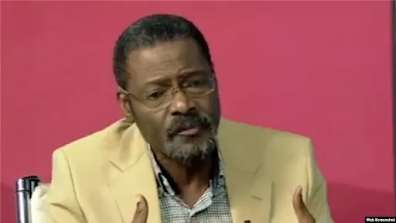Measurement of forces between MPLA and UNITA will reveal voting trend in Luanda – analyst.
An Angolan political analyst considered today that the measurement of forces between the MPLA, in power, and UNITA, in the opposition, scheduled for Saturday, in Luanda, will release an indicator on the voting trend in the Angolan capital.
“Yes, it is healthy and the measurement of forces between the two [UNITA e MPLA] will launch an indicator on the trend of voting in Luanda in the next elections. It is the great political forces that have been galvanizing political competition in Angola”, Osvaldo Mboco told Lusa.
The Popular Movement for the Liberation of Angola (MPLA, in power since 1975) has scheduled a mass political act for Saturday in Luanda, the day on which the National Union for the Total Independence of Angola (UNITA), the largest opposition party, also takes to the streets. with such an act.
João Lourenço, president of the MPLA, will lead his party’s initiative, and Adalberto Costa Júnior, leader of UNITA, will lead the activity of the “Black Rooster” party in the largest political and electoral square in the country.
For Osvaldo Mboco, Saturday’s political activities in Luanda translate into a measurement of forces, considering that Angola has been characterized as a country of “imperfect bipartisanship”.
“Because it is only these two parties that have been galvanizing political competition and this mass act in Luanda will constitute a measure of forces”, stressed the analyst.
“In my opinion, the political perspective I have is in the sense that the defense and security bodies will have a lot of work to maintain stability in this period, taking into account the possible outbreaks of social upheavals and acts of intolerance that may happen during the act. mass,” he noted.
Mboco also appealed to the need for political leaders from both parties to urge their militants to cultivate “political tolerance, calm, prudence and non-confrontation”, on public roads, on a day when Luanda is expected to register intense movement.
“That’s why I still defend that one of the parties could postpone its mass act, despite considering that the coincidence of dates is healthy at a certain point”, he stressed. Regarding the content of Saturday’s speeches, Osvaldo Mboco believes that UNITA “must continue to expose the failures of the MPLA’s governance, during the last five years and beyond, and must also reaffirm its motto of alternation”.
“A clear demonstration that it is necessary to have an alternation to change the social, political and economic framework that the country is going through”, stressed the also specialist in international relations.
“I have been arguing that the governance program that UNITA will present will not be very far from what it presented in 2017, because there are ideas there that are still structuring and current”, he stressed.
The MPLA, “without a shadow of a doubt”, he argued, “will present its achievements during this government, the projects that were materialized, those that are in the process of being materialized and those that could be materialized if it wins the elections”.
“So, the MPLA’s speech will gravitate a lot around the results that its governance has produced in this period and also the fight against corruption, one of the banners of President João Lourenço, and João Lourenço will certainly link in infrastructures, materialized projects, in ways of materialization and others”, concluded Osvaldo Mboco.
For Saturday, the Broad Convergence for the Salvation of Angola – Electoral Coalition (CASA-CE) also scheduled a mass political act, in Luanda, in the antechamber of the general elections on 24 August.
The Angolan Constitution, approved in 2010 and revised in 2021, provides for general elections to be held every five years, electing 130 deputies for the national constituency and a further five deputies for the constituencies of each of the country’s 18 provinces (total of 90), making up 220 deputies.
The head of the list by the national circle of the party or coalition of the most voted party is automatically elected President of the Republic, in the same way that previous Angolan elections have already taken place.



